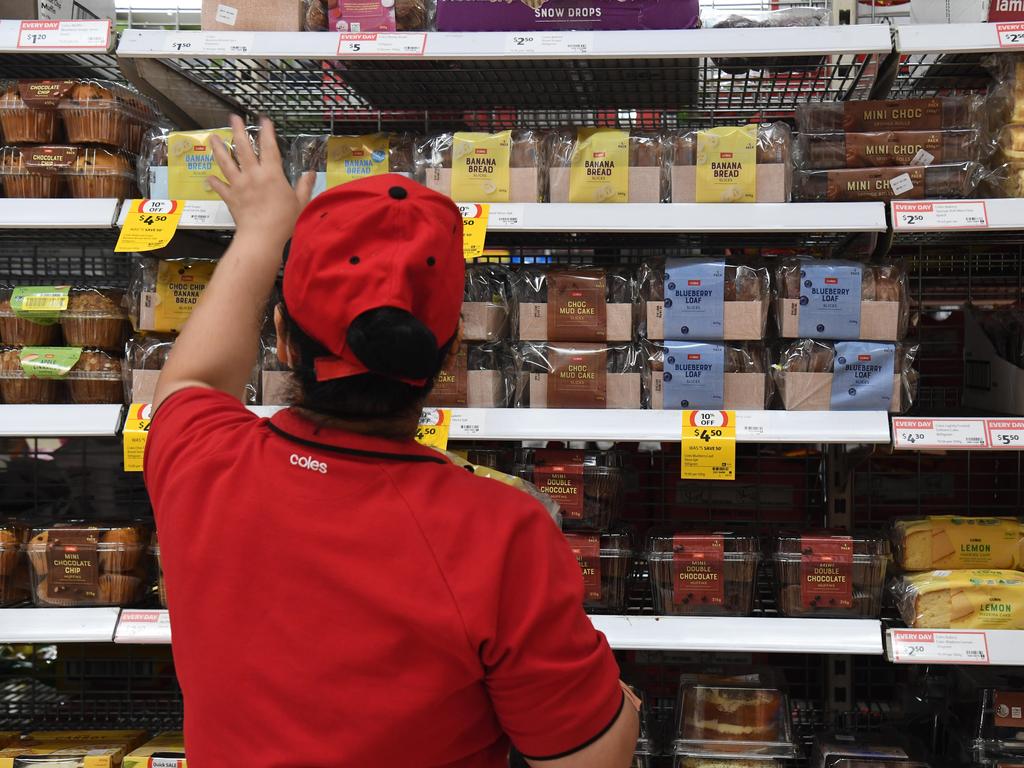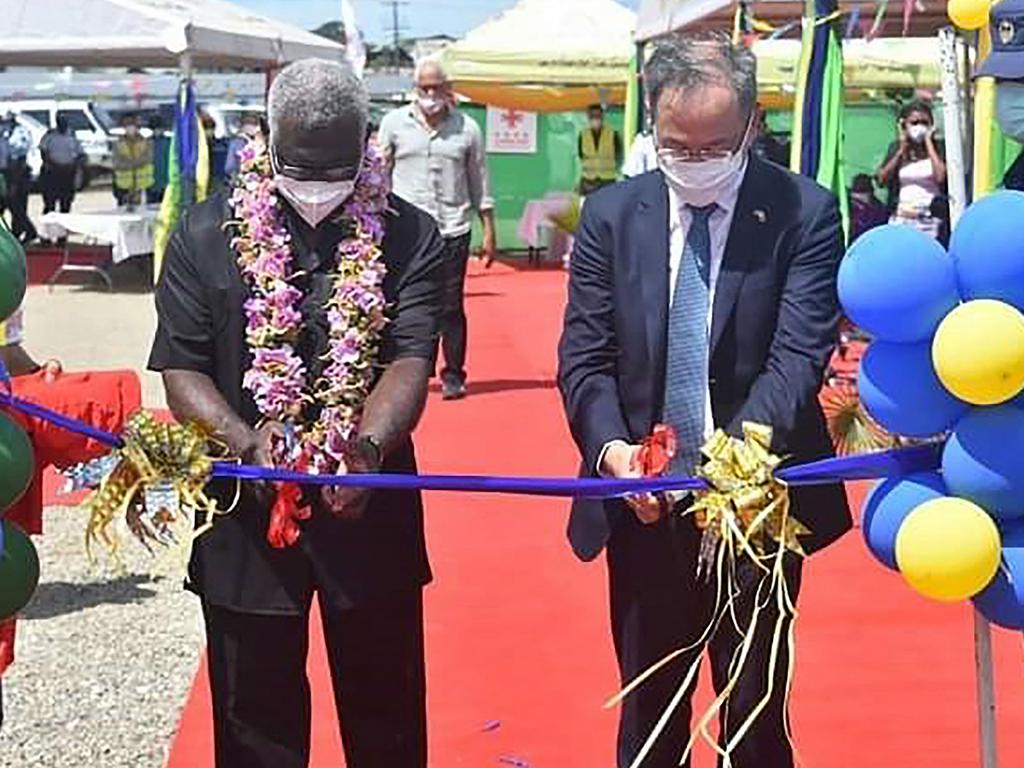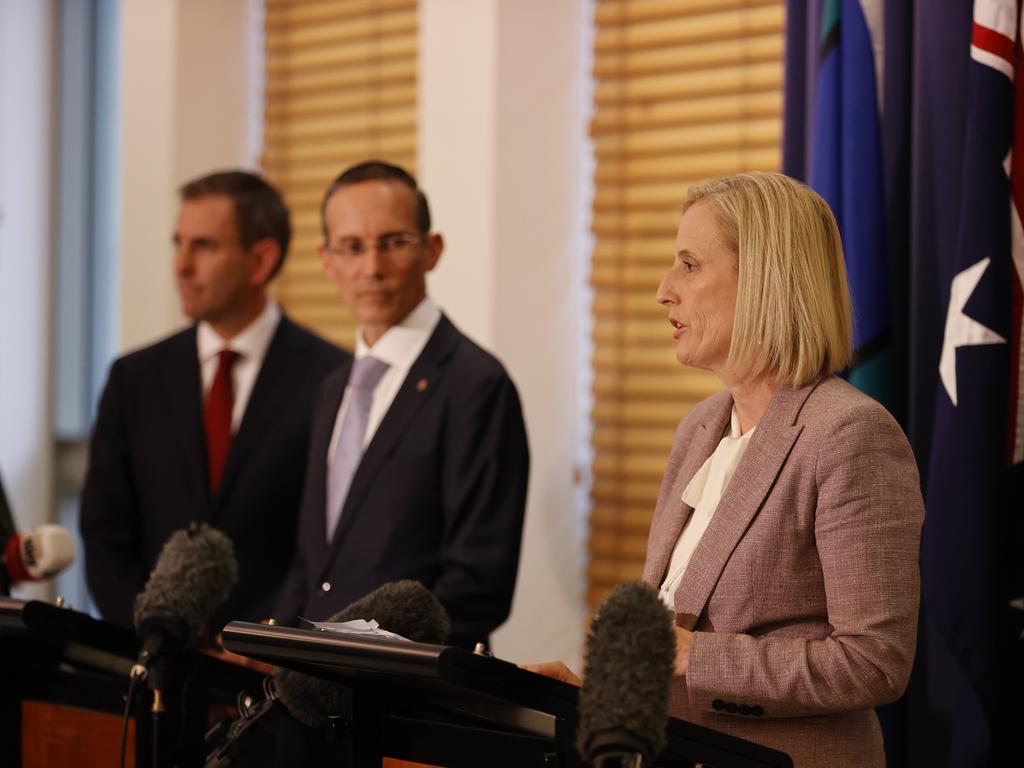Our political debate has turned mindlessly vicious
It’s not enough to portray conservatives as incompetent; they must be denounced as evil.

Most of the political critique of Scott Morrison is mindlessly vicious: that he does not care about fire and flood victims; that he wants people’s standard of living to fall; that he was uninterested in the plight of a staff member who, unbeknown to him, allegedly was raped in Parliament House; or that he intends to vandalise the planet.
This scenario is about as plausible as the antics of some dastardly pantomime villain, yet Labor and the Greens present it as a serious political attack and much of the media amplifies it.
It goes to the modus operandi of the modern political left; driven by the dual imperatives of focusing on identity and searching for motives over facts, it is not good enough to portray conservatives as incompetent or misguided, they must be denounced as evil wreckers.
Most six-year-olds would spot the flaw in this argument and wonder why people would devote their political careers to inflicting pain on others – but nonetheless this nonsense continues.
The critical question to be answered over the next few weeks is whether most of the media will remain caught up in this dumb and nasty complex. And, most important, whether the voting public is dumb and nasty enough to accept these arguments.
The double standards are so obvious they defy belief. In the past week or so we have seen Morrison demonised for daring to say he was blessed to have two healthy children, while Labor’s Jason Clare was lauded as a pop culture whiz for mocking Coalition frontbencher Zed Seselja over his Croatian name.
Flip that one around – if Penny Wong said she was blessed to have healthy children she (rightly) would have met with gushing approval, and if a Coalition politician made a quip about Labor senator Malarndirri McCarthy’s name they (rightly) would be denounced for race-based mockery.
The confected outrage machine fires only from left to right. But does it do enough damage to undermine proper political and policy debate? We might soon find out.
Despite the social media-driven Morrison memes about “I don’t hold a hose” and “that’s not my job” there can be no denying of the overall relative competence of the Coalition government in trying times.
Certainly, I have my criticisms about a lack of conviction on climate and energy policy, profligate spending, reluctance to engage in the important cultural battles about education and history, and impotence in standing up to the pandemic paranoia and draconian overreach of the states, but just look at the record and compare it globally.
The most consequential decision of the pandemic was Morrison’s call to close our international border and instigate national quarantine so that, as far as possible, we could keep the virus out of our country until vaccines were produced.

This decision was initially criticised, including by the World Health Organisation, and I would argue it soon became too stringent, especially against Australian citizens looking to travel in either direction. But it worked.
Australia’s Covid-19 mortality rate of 275 deaths per million people places us in the top quarter of countries – one of the very best when it comes to developed nations. Only Japan and New Zealand, also taking advantage of their island status, have matched us.
The global mortality rate of 800 deaths per million is more than three times higher, while Britain, France and Italy had 10 times the deaths, proportionately, and the US still more again. And for all the “it’s not a race” nonsense, Australia has rapidly become one of the most vaccinated countries, with higher rates than Britain, France, Germany, the US and even New Zealand.
Medically, no developed nation can claim to have performed better than us (the cruelty of interstate border closures and unnecessary lockdowns notwithstanding).
Economically, we have ended up with more people in work than before the pandemic and a jobless rate of just 4 per cent. Fewer than 10 developed nations can match that performance, while at least 15 G20 nations trail us on employment performance.
Overall, on pandemic management and resilience, we are the envy of the world. This must count for something. Especially given the way Labor criticises the government over high inflation even though its only policy alternatives involved additional inflationary spending, such as tens of billions to extend JobKeeper, $6bn in cash rewards for vaccinations and untold billions buying into Virgin Australia Airlines.
With interest rates about to start the climb back to normality in a bid to avert runaway inflation, the economic challenge is afoot. Recovering from the pandemic recession is vital to shrink the monumental debt burden that is its legacy. At the same time we face genuine strategic threats because of the rise of a belligerent China in our region and a lack of defence preparedness.
In Europe the Russian invasion of Ukraine has demonstrated the brutality of authoritarian nations and the fragility of climate-focused energy grids. At such a time we might expect more substantial election debates in Australia.
Instead, both major parties treat as sacrilege the rational observation by former resources minister Matt Canavan that net-zero aspirations have been discarded by northern hemisphere nations in favour of the energy security imperative.
Current polling suggests we could see the worst possible election outcome – a minority Labor government reliant on Greens and green-left independents. This is the power sharing that Adam Bandt, Simon Holmes a Court and Allegra Spender dream about.
On national security, after years of criticising the Coalition for riling Beijing, Labor’s pre-election positioning was to claim bipartisanship on standing up to China.
Yet that has been thrown out the window as it blames Morrison – and not Honiara or Beijing – for the secret security pact signed between these two sovereign nations.

Yet again Labor is running the same arguments against Canberra that China would use. Are we to believe Labor’s claims about unity on China or should we judge them by their actions? Will Beijing apologists such as Bob Carr and Paul Keating have no influence on a Labor government from their lofty positions in the ALP alumni? Would Sam Dastyari put up his hand to be ambassador in Beijing?
Can Labor be trusted to bolster our defence hardware when it cut defence spending and failed to commission a single naval vessel when last in office? Or should we be more worried that French President Emmanuel Macron was miffed when Morrison reneged on his subs deal? Can we really skirt around this discussion until after polling day?
Is it really the contention of the fake independents of the leafy Liberal seats that the most pressing issue facing the nation is climate change? Do they not realise that even if the nation was run by an army of women in teal T-shirts Australian policy decisions could not have a discernible influence, for good or ill, on the climate?
Can they really continue to blame recent fires, floods and droughts on climate change when we have seen worse fires, floods and droughts long before anthropogenic emissions could have had any influence on the climate? Are they interested in facts or only in emotive alarmism?
People living in the richest electorates in the country, in large, airconditioned houses with Range Rovers to take them to their farms and beach houses when they choose not to holiday overseas are being urged to tell others to reduce their carbon footprints. If the teal brigade holds sway, working families elsewhere can wear the consequences of higher electricity prices, more expensive vehicles and job losses in key industries.
People who buy this are surrendering logic in favour of sanctimony. And if they vote according to this script they will deliver self-harm based on fallacies.
We need to discuss the actual performance of a ragtag government, the risks of what Labor promises to change and improve, and the plausibility of either side delivering on their promises.
We need to interrogate the aims and likely influence of the fake independents – or the “anti-Liberal” independents, as Morrison has dubbed them. Nasty and erroneous drivel should not determine election results.
They should be settled over policy positions, demonstrated competence and consistency – and, ultimately, the self-interest of the nation.








We are halfway through a six-week election campaign that will determine who governs the country at a particularly perilous and challenging time in our economic and strategic development. Yet our political debate is largely dumb and nasty, mired in personal attacks and distractions.